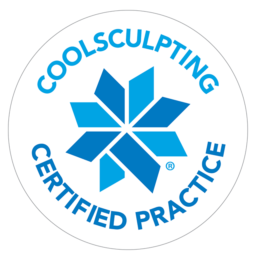
Dermal fillers and Botox® injections are two of the most popular nonsurgical cosmetic treatments in the United States. According to the American Society of Plastic Surgeons, as many as 10 million Americans choose dermal fillers and Botox to erase their lines and wrinkles and enhance their natural beauty in 2018.
Why are dermal fillers and Botox so popular? Because they provide consistent, yet subtle results. These cosmetic injections enhance your natural look without making it look like you had work done.
At Montclair Rejuvenation Center in Verona, New Jersey, we want nothing more than for you to get the results you expect from your cosmetic injections, which is why we do everything we can to prevent bruising from your injections. But we need your help, too, which is why we’re sharing our top tips for what you can do to prevent bruising after your dermal filler and Botox injections.
Share your list of medications and supplements
We can help prevent bruising from your dermal filler and Botox injections, but only if you share all your medical information with us, including the types of medications and supplements you take. The types of medications you take may increase your risk of bruising after your injections, including aspirin, blood thinners, and anticoagulants. Topical corticosteroid medication may also increase your risk of bruising after your injections.
Stopping your medication prior to your cosmetic injections may not be an option. However, if we know in advance the types of medications you’re taking, we can adjust your treatment plan to reduce the risk of side effects.
If aspirin isn’t a medical necessity, we recommend that you stop using the over-the-counter drug for a week prior to your dermal filler and Botox injections. We also recommend you avoid nonsteroidal anti-inflammatory drugs (NSAIDS) at least five days prior to treatment.
Your daily supplement regimen may also increase your risk of post-cosmetic injection bruising, including vitamin E, garlic, and ginkgo biloba. We recommend you refrain from taking your supplements for at least two weeks before your scheduled appointment.
Use cold compresses after your injections
Bruises most often develop from broken capillaries near the surface of your skin that leak blood, creating the noticeable blue or black mark. Applying a cold compress to your injection site immediately after treatment causes the blood vessels under your skin to constrict, halting the flow of blood and stopping the formation of a bruise.
Cold compresses may also ease any discomfort you experience after your dermal filler or Botox injections. You need to continue to avoid over-the-counter pain relievers, like NSAIDs and aspirin, after your cosmetic treatment to reduce the risk of bruising.
Try a topical agent
According to an August 2013 report published in The Journal of Clinical and Aesthetic Dermatology, applying various topical agents to your skin may help reduce the formation of a bruise or speed up your body’s bruise healing process. The topical agents most often used to help prevent bruising include arnica, vitamin K, and bromelain. Taking arnica orally or eating pineapple (source of bromelain) may also help.
Keep your head elevated
Keeping your head elevated may help prevent blood from pooling and decrease your risk of bruising. During the day, this may not be too difficult. When sleeping, prop your head up with pillows so it rests higher than your heart.
Skip your vigorous workout
Dermal fillers and Botox injections are sometimes referred to as a lunchtime beauty treatment because the injections are quick and downtime isn’t necessary. But, we do recommend you delay your vigorous workouts for at least 24 hours after your injections. Sweating may increase swelling at the site of your injections, which may lead to bruising.
Though these tips may help reduce your risk of bruising from your dermal filler and Botox injections, the best way to prevent the very noticeable side effect is to make sure your injections are done by experienced physicians like us. Careful injections by a skilled hand significantly reduces risk of bruising.
To schedule a consultation to discuss your dermal filler and Botox injections, contact us by phone or online today.


